
The Internet Backs This Doctor Who Gave Anti-Vax Friend A Reality Check After She Wouldn’t Stop Calling Her About Her Sick Kids
Being a doctor must be both rewarding and frustrating. On the one hand, you save lives and help people maintain their health. On the other, you give people clear, scientifically-backed advice and watch them ignore it. Unfortunately, medical advice is not something anyone should just disregard, but often people find that out too late.
Recently, a doctor asked the internet if her actions towards a friend were maybe too unsympathetic. She received a call in the middle of the night from their friend, whose kid had developed a high fever. The problem began when the doctor asked her friend if she had vaccinated her child as recommended.
Doctors often have to deal with friends and acquaintances who ask for medical guidance and then don’t follow it
Image credits: AnnaStills (not the actual photo)
OP’s friend had strong beliefs about vaccines despite what she, as a doctor, had told her
The friend’s child developed a high fever during the night. But the doctor wasn’t particularly supportive when she heard the friend’s explanation
Image credits: Prostock-studio (not the actual photo)
Image credits: thisisayhrowaway567
Mistrust in medical experts has led to the reemergence of polio and other illnesses
The doctor’s unhappiness is in many ways justified. Polio has been around since ancient Egypt, as there are depictions of children and wealthy people using canes to help them move about. If you are wondering why canes are relevant to polio, wonder no more. A common sign of the disease is weakness in the legs, or, more specifically, one leg. The actual death rate is not that high, but can still have long-term effects on otherwise healthy individuals. Children in particular are at risk.
Image credits: seventyfourimages (not the actual photo)
Not knowing the symptoms of polio is actually a pretty good metaphor for how effective modern medicine has been at eradicating it. First and foremost, we have to thank vaccines. In the case of polio, vaccination is 99% effective at preventing the disease. What about that one percent, you might ask. Well, like most similar diseases, it needs a host. If you remove 99% of the population as potential hosts, a disease will struggle to spread. This is how polio, among others, became extinct in the developed world. As the OP mentioned, there are now groups of people who seem to believe that any vaccination will cause harm. And thus, a dead disease is now around again.
History shows that humans have been looking for defenses against infectious diseases for a long time
The idea to dose oneself with a small amount of something to become immune is actually older than you might think. There is some evidence that in 10th-century China, people would inhale small amounts of powdered smallpox material to build immunity to it. Modern researchers believe this strategy could actually work, though our smallpox vaccines are much more efficient. In Europe, people would ‘exchange’ smallpox through small cuts on their arms. So just count your blessings when it comes to doctors’ needles, it could be worse!
Image credits: RLTheis (not the actual photo)
Modern vaccines also help focus your body’s defense on relevant threats. Bill Bryson, author of “A Short History of Nearly Everything” writes “Your body holds lots of different varieties of defensive white cells—some ten million types in all, each designed to identify and destroy a particular sort of invader. It would be impossibly inefficient to maintain ten million separate standing armies, so each variety of white cell keeps only a few scouts on active duty. When an infectious agent—what’s known as an antigen—invades, relevant scouts, identify the attacker and put out a call for reinforcements of the right type.” So rest easy, knowing that your body is constantly training defenses to protect you.
Unfortunately, there is a lot of misinformation mixed with general medical ignorance out there. While some are just skeptics, there are movements that actively try to limit or prevent vaccines from reaching people. In 2019, the WHO listed ‘vaccine hesitancy’ as a major health threat in the future. At the time, outbreaks of previously eradicated diseases (like polio) were cited as the main issue, but 2020 would prove the WHO even more correct.
OP added some extra details in the comments and shares their thoughts on vaccines
Commenters took the doctor’s side and even expressed anger at their clueless friend
As a medical doctor myself I feel rage, incredulity and hopelessness reading about this. There's an effing POLIO outbreak happening in a supposedly civilized country? Polio - which has been eradicated for decades thanks to vaccines (which are safe and very, very effective in this case). If you don't vaccinate your child because of your 'beliefs' and it dies by a perfectly preventable illness you have to be made responsible. That's my opinion anyway
Absolutely. Freedom of choice does not mean freedom from consequences. You have chosen to endanger your child so if that child is harmed you should be charged accordingly.
Load More Replies...NTA. Anti-vaxxers deserve no respect or sympathy. They're the @ssholes, and it's the kids who suffer for it.
I hope they get shingles. I'm vaccinated for that too!
Load More Replies...Fun extra comment from OP: "actually she asked me in the past if she can sue a pediatrician because he didn’t allow her kid into the practice due to being unvaccinated. basically her child has autism. and she thinks he got it after the mmr vaccine. but logic seems to not work—all these years of not vaccinating, the autism did not magically go away, did it? yet she still insists. I am hoping the polio scare in the school will make her vaccinate her kid."
The doctor who first perpetuated the idea that vaccines cause autism has been proven to lie, was dragged to court and been stripped of his title as doctor. These antivaxxers never talk about that.
Load More Replies...As a medical doctor myself I feel rage, incredulity and hopelessness reading about this. There's an effing POLIO outbreak happening in a supposedly civilized country? Polio - which has been eradicated for decades thanks to vaccines (which are safe and very, very effective in this case). If you don't vaccinate your child because of your 'beliefs' and it dies by a perfectly preventable illness you have to be made responsible. That's my opinion anyway
Absolutely. Freedom of choice does not mean freedom from consequences. You have chosen to endanger your child so if that child is harmed you should be charged accordingly.
Load More Replies...NTA. Anti-vaxxers deserve no respect or sympathy. They're the @ssholes, and it's the kids who suffer for it.
I hope they get shingles. I'm vaccinated for that too!
Load More Replies...Fun extra comment from OP: "actually she asked me in the past if she can sue a pediatrician because he didn’t allow her kid into the practice due to being unvaccinated. basically her child has autism. and she thinks he got it after the mmr vaccine. but logic seems to not work—all these years of not vaccinating, the autism did not magically go away, did it? yet she still insists. I am hoping the polio scare in the school will make her vaccinate her kid."
The doctor who first perpetuated the idea that vaccines cause autism has been proven to lie, was dragged to court and been stripped of his title as doctor. These antivaxxers never talk about that.
Load More Replies...
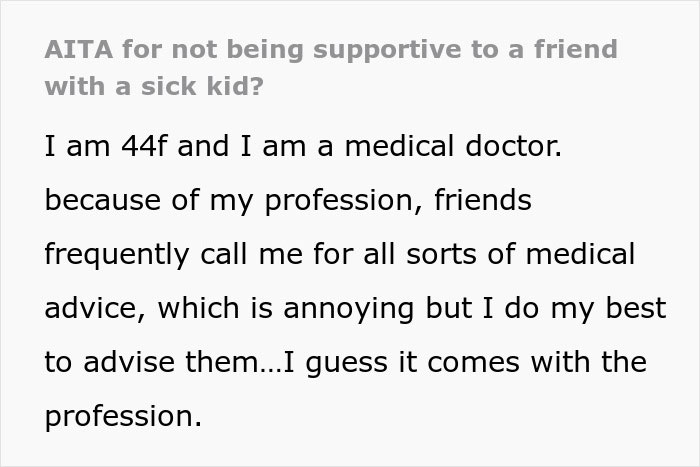
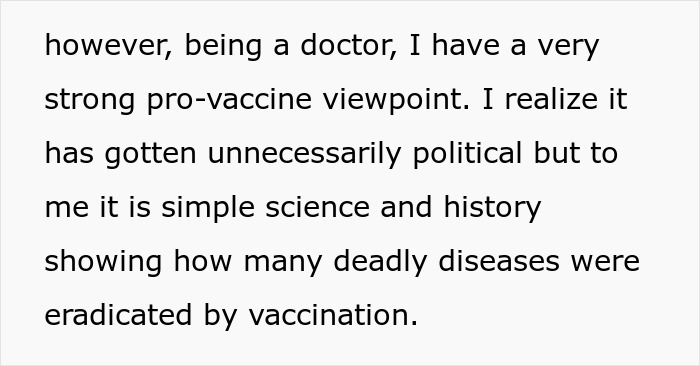
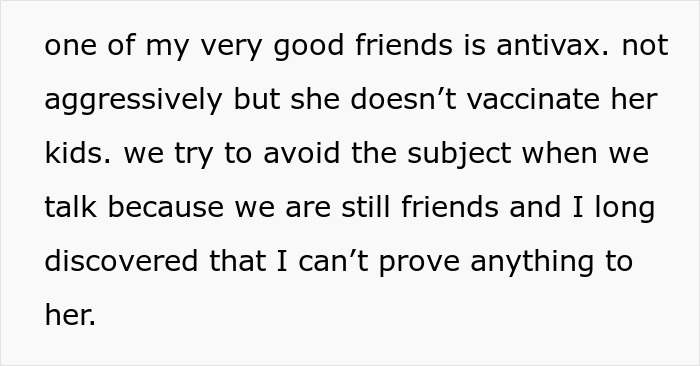

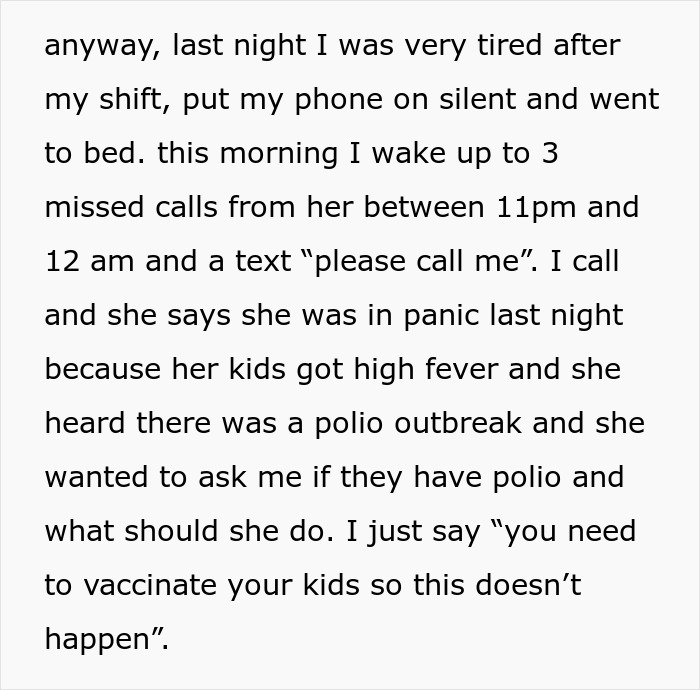
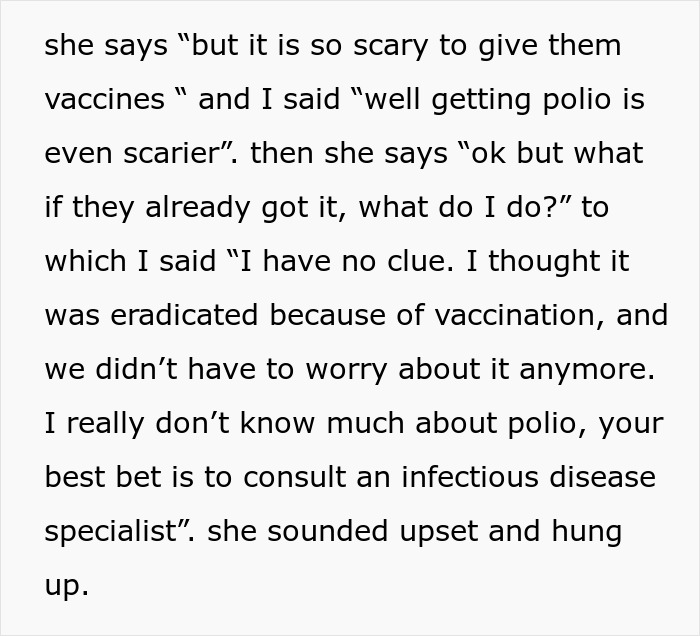
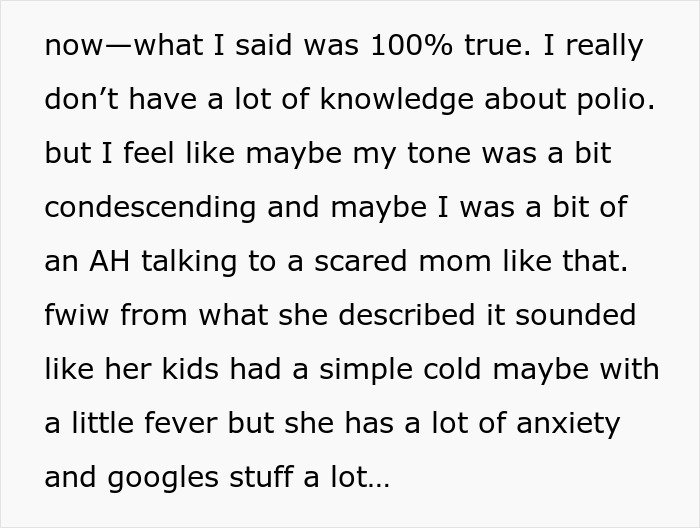



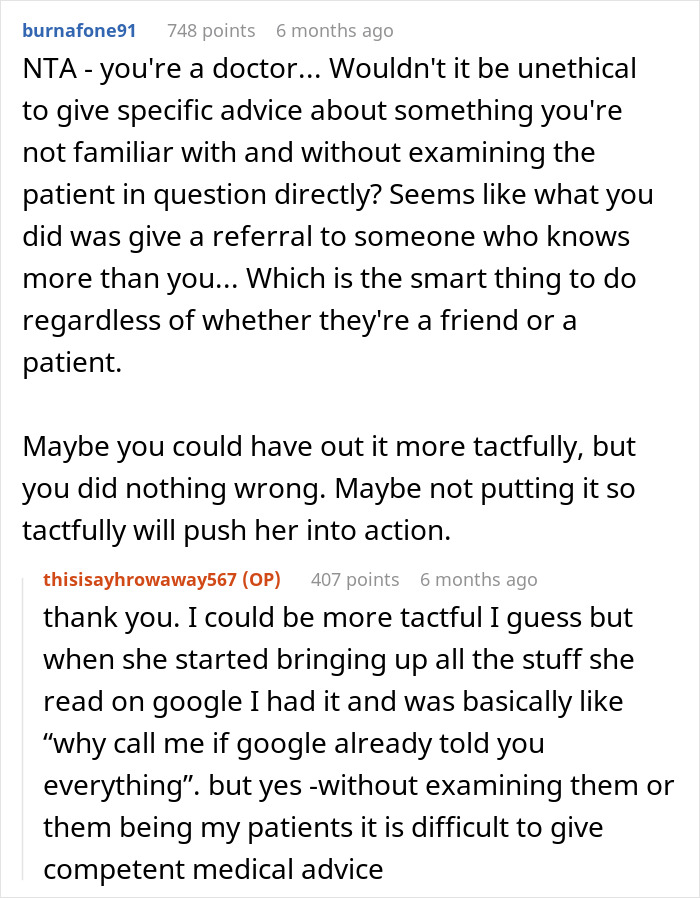
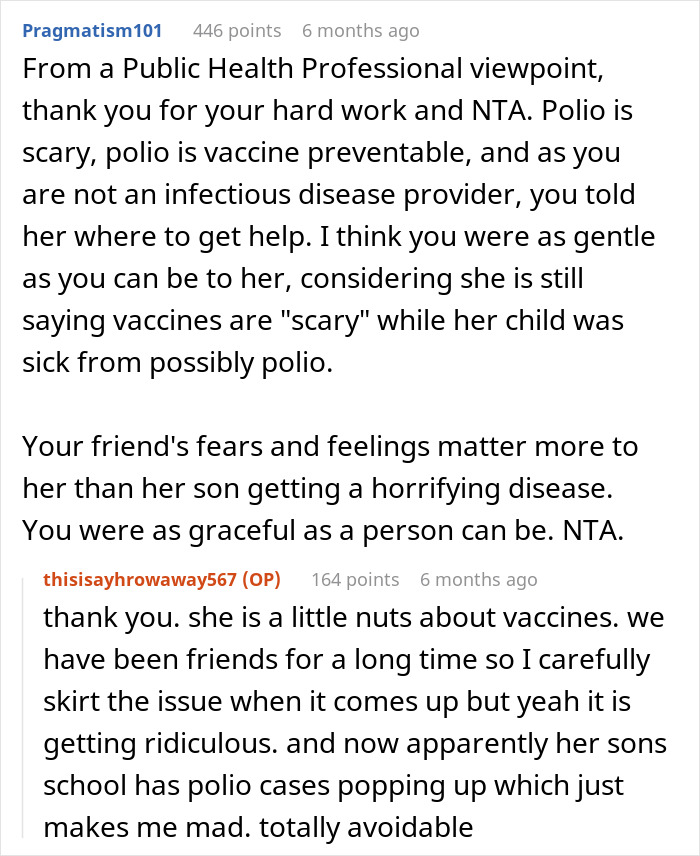
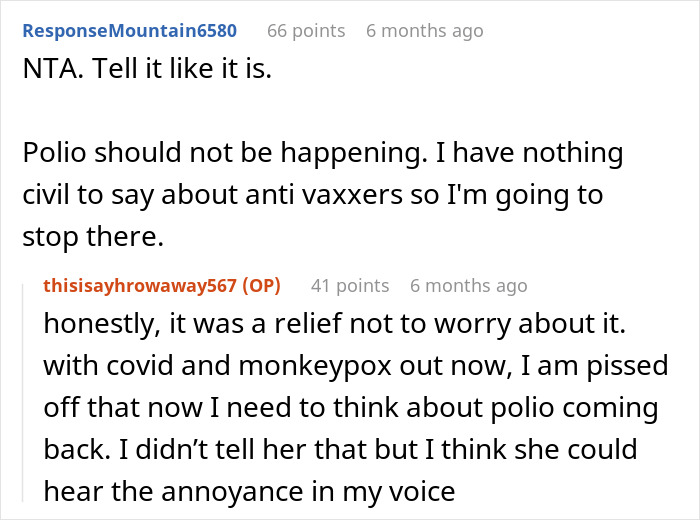
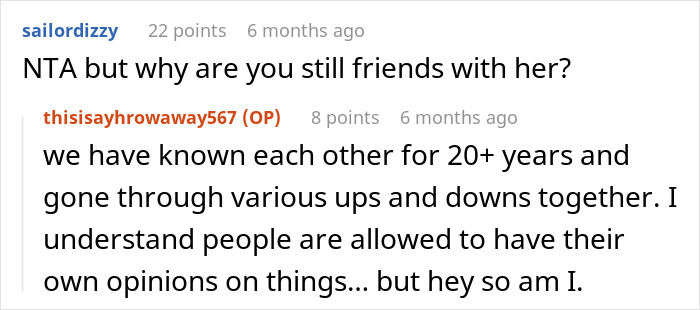
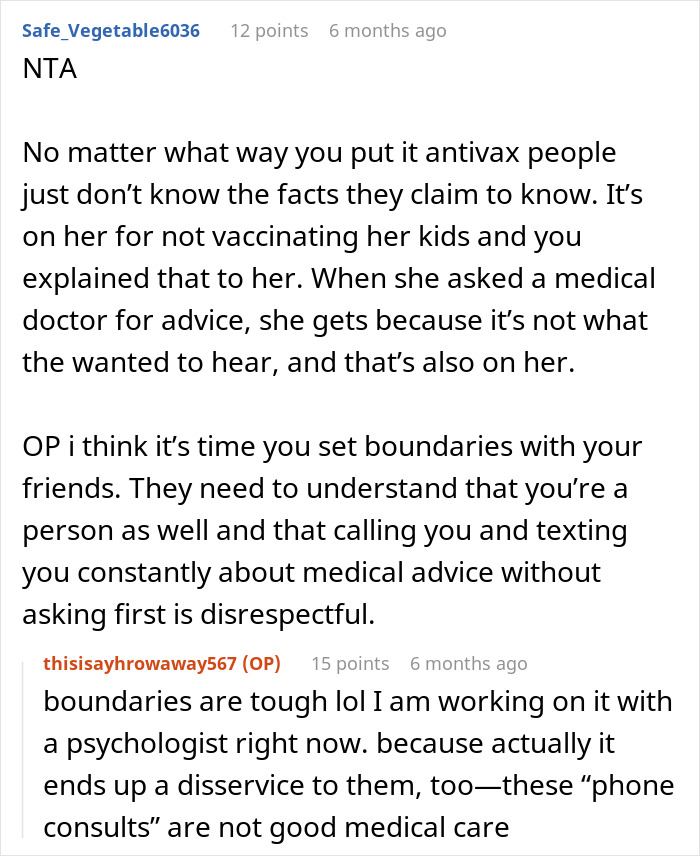

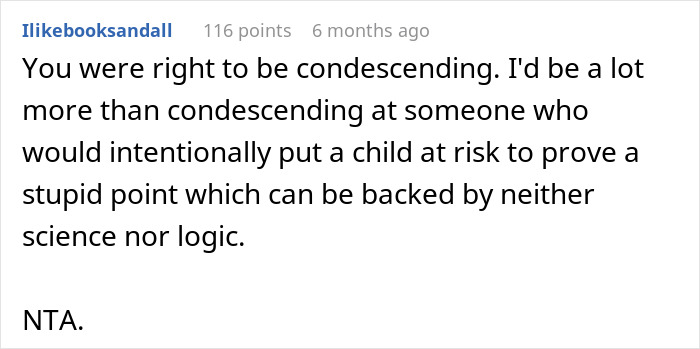

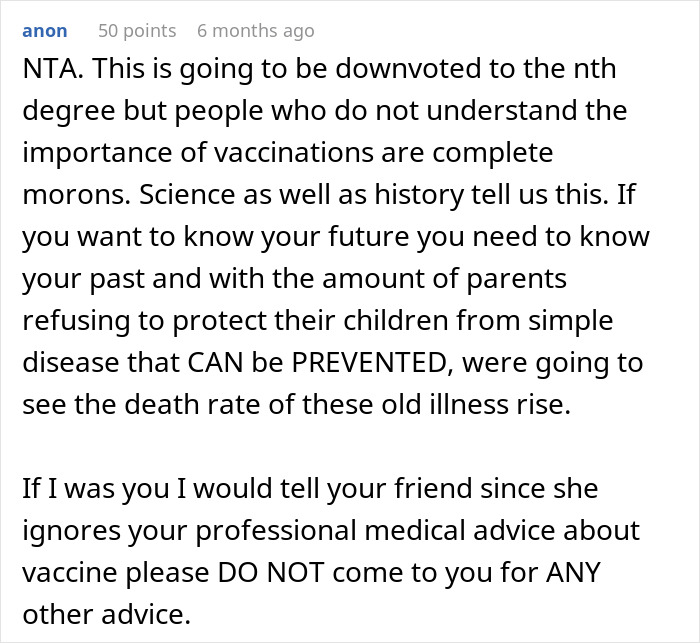
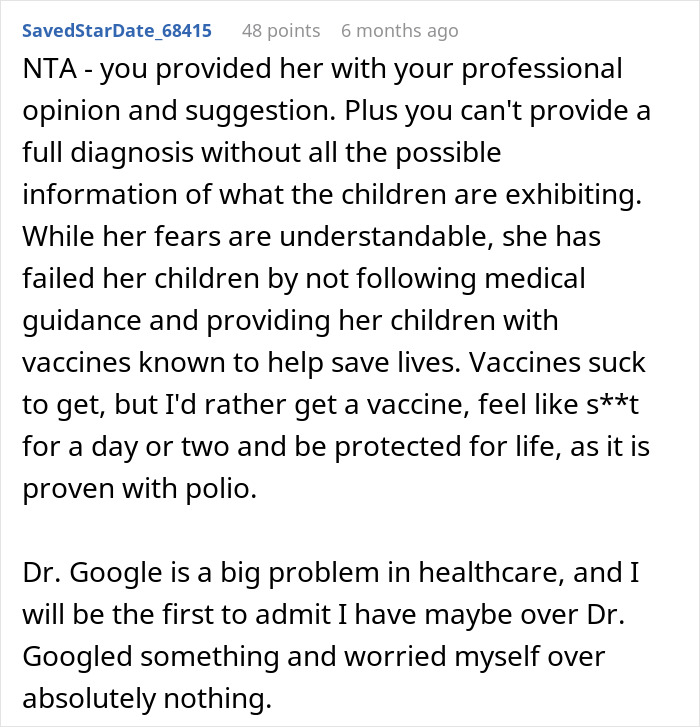
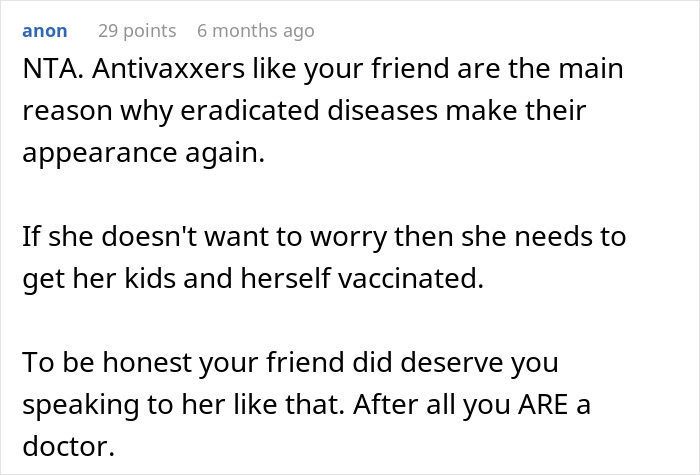
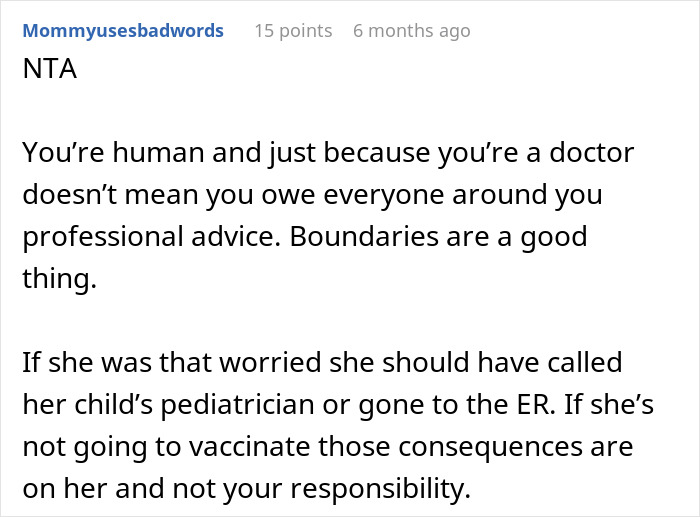


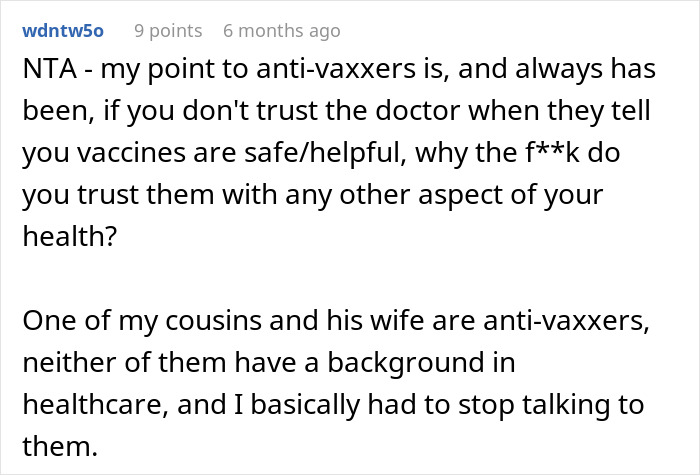
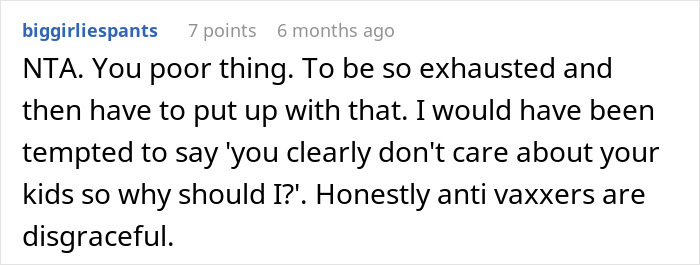
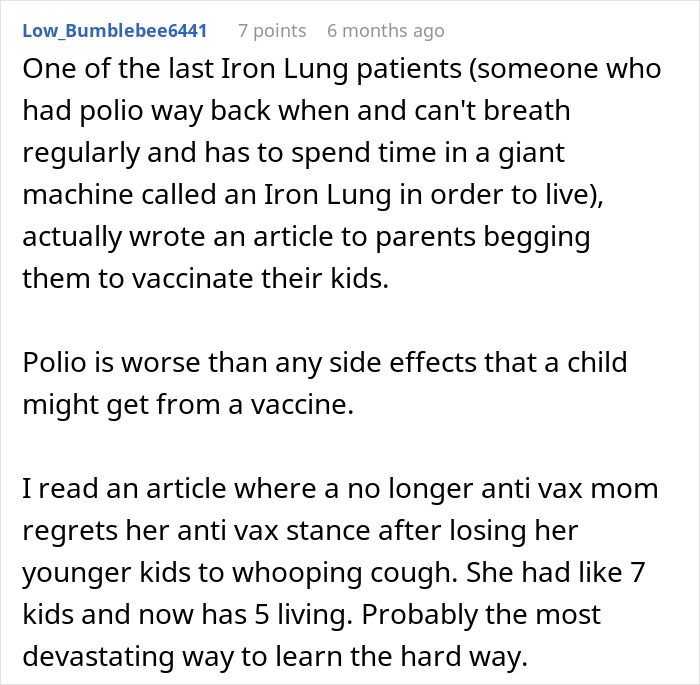
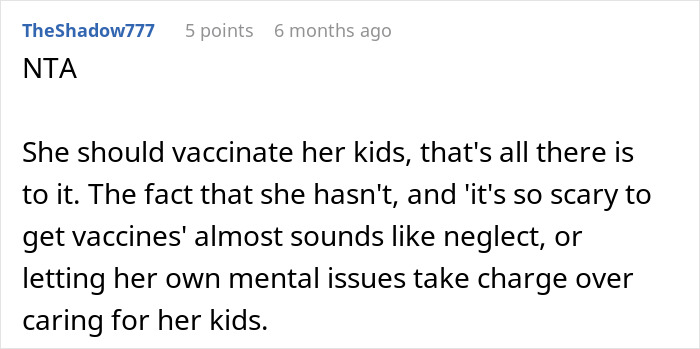
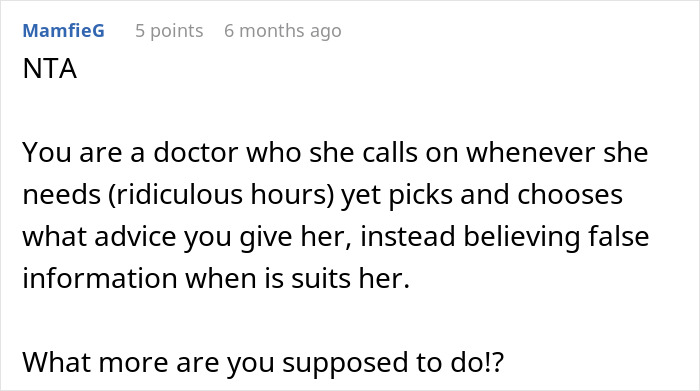
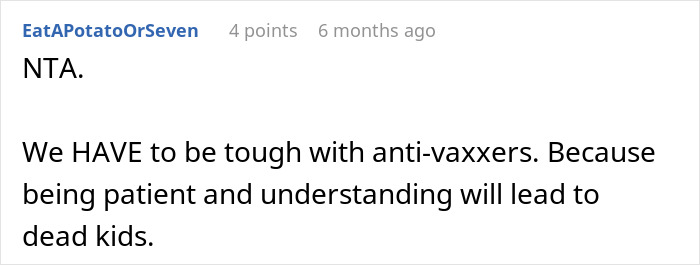
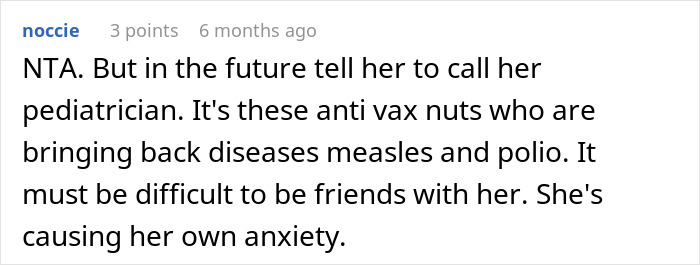




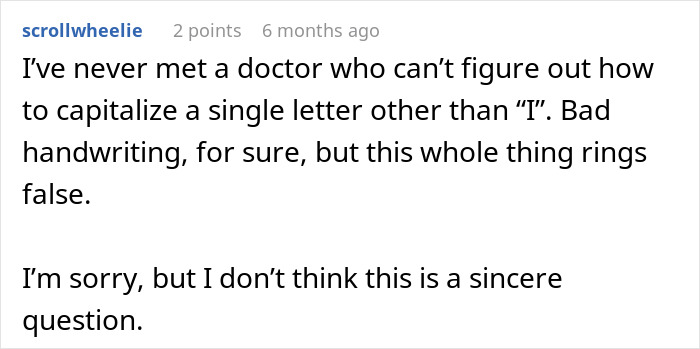
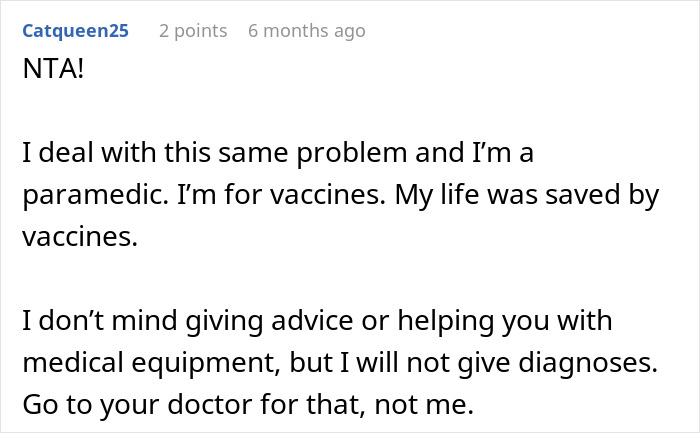






128
103